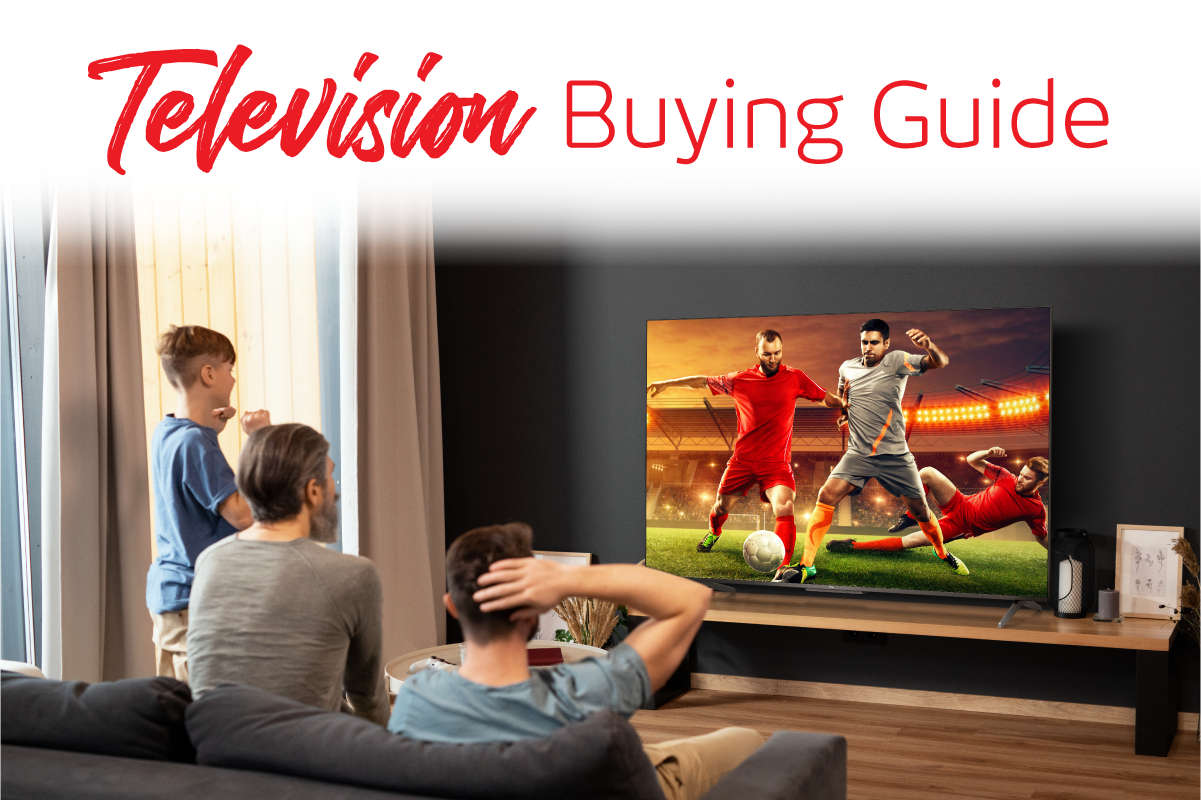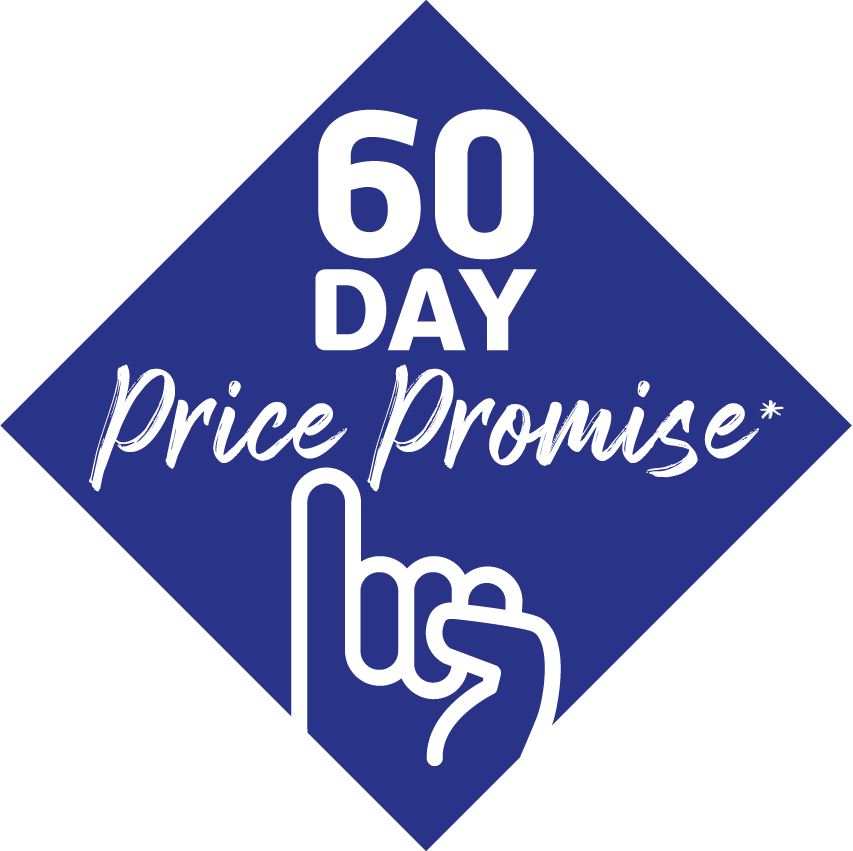
The 2026 Guide To Buying The Best Air Conditioner In Australia
It can get HOT in the summer months in Australia, which is why a good air conditioner is a home and office essential. The best air conditioners will keep you cool, even on the most sweltering days, whilst warming you up during the winter months as well.
With cooling costs accounting for 13% of the typical household’s annual energy bill* it's important to spend time comparing air conditioners. Finding an energy efficient air conditioner for the home could save you a lot of money on running costs.
But where do you start? Our comprehensive buying guide makes it simple to choose the right air conditioner for your home by comparing all the options and features available. Plus, you can always speak to our friendly team of air conditioning experts in-store and online for tips and advice on how to choose an air conditioner.
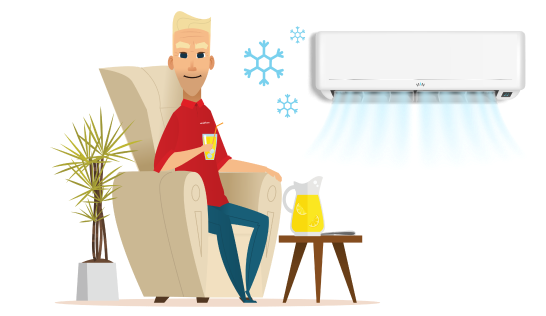
Cool Tips On Your AC
Check out our handy air conditioner buying guide for all the best tips and advice on buying an air conditioner, and all the latest products from leading brands!
Types of Air Conditioners
Window, split system, portable - which type of home air conditioner is suitable for your space? The right air conditioner for your space will depend on your specific needs and budget. Whilst some are designed to keep small spaces comfortable in the sweltering heat, others are capable of heating and cooling large areas. At Retravision you’ll find a huge range of air conditioners available from some of the world’s biggest brands like Fujitsu, Mitsubishi, Panasonic, Kelvinator, Haier, Hisense, Teco, Electrolux and Dimplex.
One of the first things you should consider when choosing an air conditioner is what type will have the necessary output and features to adequately cool or heat your home. Read on below for a comparison of the different types of air conditioners available.
Split System Air Conditioners
A wall-mounted split system air conditioner is the most common solution for heating and cooling one or more rooms or an open-plan area. They have two parts: an indoor unit connected by pipes to an external unit to exhaust air out. They are known as ‘split systems’ because they work by having the indoor and outdoor systems work together to regulate the air inside your home. They are relatively low cost to install, so you can have one in different rooms for flexibility, making split systems for the bedroom a popular choice. So, what size split system should you buy? The size of the split systems that you will need will depend on the room that you’re trying to cool.
But, what’s the difference between reverse cycle and split system air conditioners? A standard split system works by extracting air from your home to keep it cool, whilst a reverse cycle split system is capable of both heating and cooling your home. They are, in fact, one of the cheapest solutions for heating your home in winter.
Shop Our Range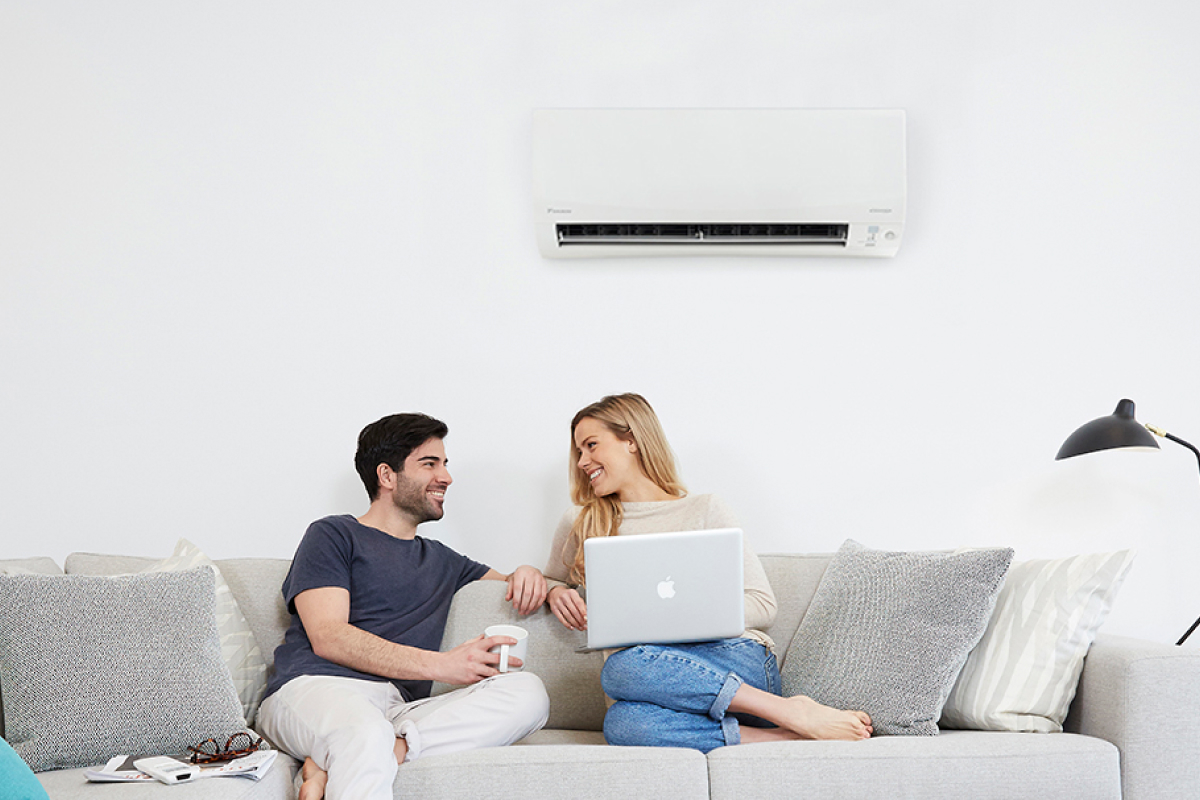
Top Split System Air Conditioners
Window Air Conditioners
A window (or wall) air conditioning system is installed into a window, or a hole in your wall. Certain models are capable of both heating and cooling, to keep you comfortable year-round. They’re suitable for managing the temperature of single rooms and are a popular choice for bedrooms. They’re often considered to be one of the best air conditioners for a small room.
Shop Our Range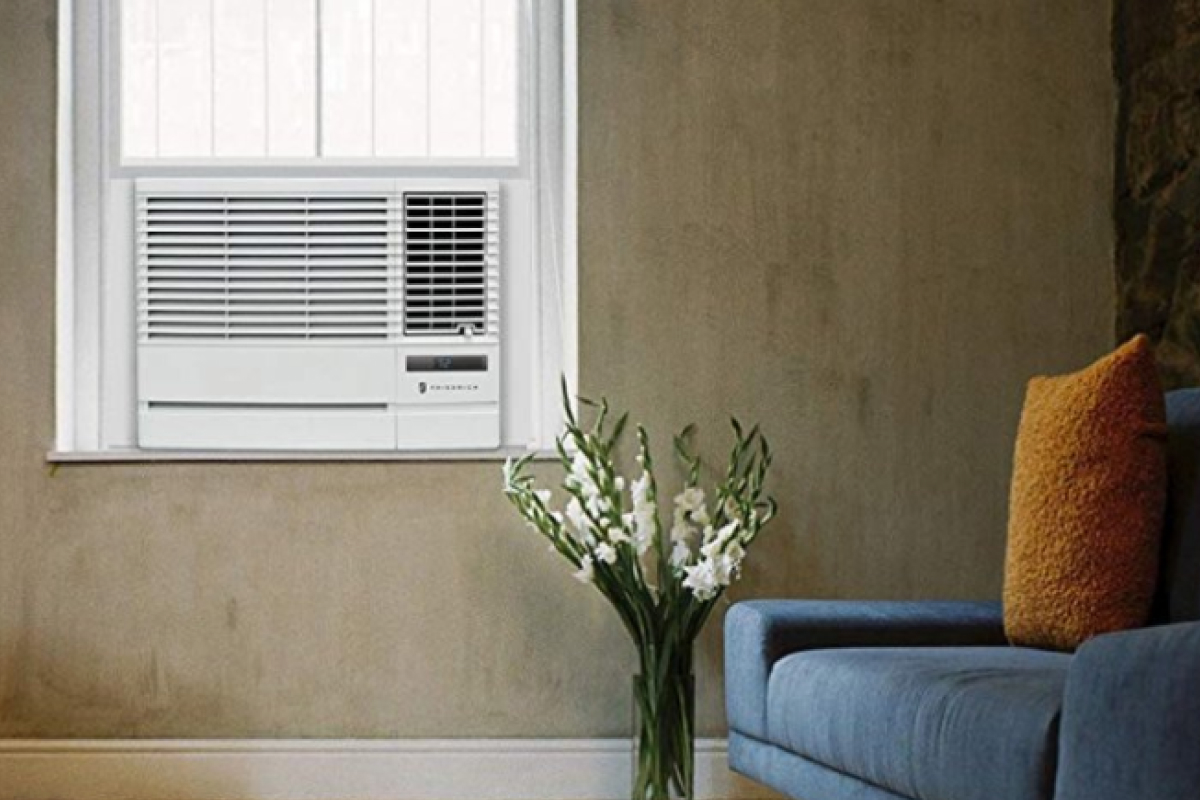
Top Window Air Conditioners
Portable Air Conditioners
Portable air conditioners are perfect for renters or for when you just need a fast solution for managing the temperature in a room like a bedroom or living space. Most models are capable of both heating and cooling your home and have a minimal upfront cost. One of the best things about portable air conditioners is that they require no installation and can be moved from room to room, just plug them in and away you go!
Shop Our Range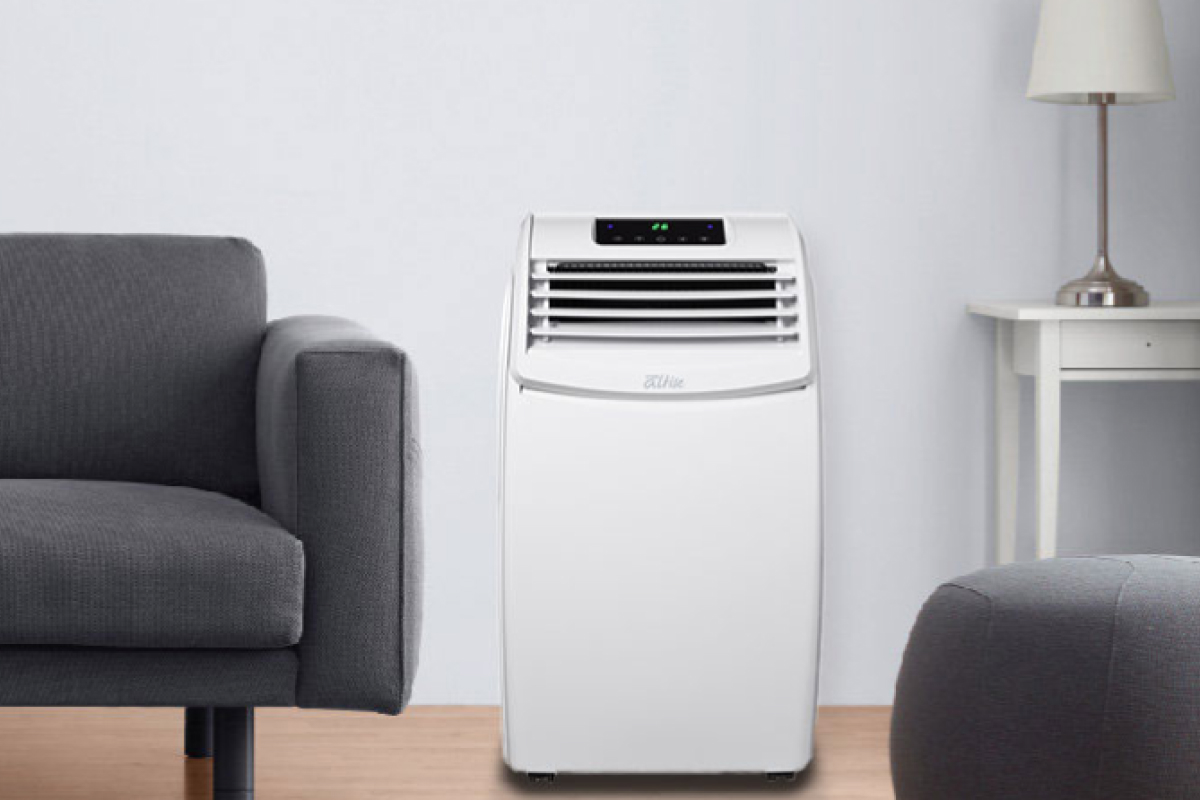
Top Portable Air Conditioners

What To Consider
When comparing air conditioners there are a few key things to consider;

Power
How much power are you going to need to adequately cool your home? Air conditioners vary in power output. If you choose one with an output that is too low for the space you’re trying to cool, you’ll find it won’t cool your space down very well.
Generally, if you’re wondering what size air conditioner to buy you’ll want to follow these guidelines when selecting an air conditioner:
- For rooms up to 20 m2 you will need air conditioners that are 2 - 2.5 kW
- For rooms 20 - 40 m2 you will need air conditioners that are 2.5 - 5 kW
- For rooms 40 - 60 m2 you will need air conditioners that are 4 - 6 kW
- For rooms 60 - 80 m2 you will need air conditioners that are 5 - 7 kW
- For rooms 80+ m2 you will need air conditioners that are 6 - 9 kW

Cost
How much do air conditioners cost? The cost to purchase an air conditioner could range from a few hundred dollars to thousands. Factors that can impact pricing include the size, type, brand and features of the model you are purchasing. Time of year can also have an impact, as air conditioners are sometimes cheaper to purchase and install in the off-season months. You may also need to factor in installation costs, as certain types of air conditioners such as split system and evaporative, will need to be installed by a professional. Once your system is installed you’ll also need to think about ongoing running costs and maintenance. Air conditioners with features like human detection and eco settings can save money on running costs.

Fan speed
Most air conditioners will use a fan to circulate warm or cool air around a room. It’s a good idea to look for models that have multiple fan speed options; from high - for fast cooling, to low - to keep noise and draftiness at a minimum. Some air conditioners will have automatic settings, to adjust to the conditions in your home, and energy efficient eco settings.

Noise
A noisy air conditioner can be disruptive to your daily activities. Before you purchase a new air conditioner, it’s a good idea to consider how much noise it produces. Most will range from about 19 dB to about 53 dB. Under 30 dB is around the typical noise level you would expect from a quieter home. A system that is too loud inside the home may keep you awake or become annoying, whilst noisy outside exhaust fans may bother your neighbours.

Location
Before you choose your new air conditioner, you should take the time to consider where it will be positioned. Finding the best location for your air conditioner will help you to more efficiently cool your home down. A split system facing an open place space for instance, may do more to cool down your home than one that blows directly onto another wall.

Features
Many air conditioners come with clever extra features like mobile app control, human presence sensors and sleep modes. Features like delay modes and demand response enabling can also help you to manage your energy costs and take advantage of off-peak tariffs.

Installation
Almost all air conditioners will require professional installation unless they are portable. Professional installation ensures that your new air-con unit is handled correctly and safely. Incorrect installation could void your warranty, so it’s important it’s done right. At Retravision we offer professional delivery and install, so you can rest easy!
FAQs
Do portable air conditioners use a lot of electricity?
Portable air conditioners, whilst very convenient and affordable upfront, are not the most energy efficient option on the market. Most use quite a lot of power relative to their size and can quickly become expensive to run all the time. They are best used in smaller spaces over shorter periods of time, trying to cool your whole home with one will likely leave you with a big energy bill at the end of the month.
What should I look for when buying an air conditioner?
There are a number of things you should look for when buying a new air conditioner. Firstly, you should consider the type of air conditioner and how much power it uses. Look at measurements like its energy efficiency rating and its dehumidification level, which tells you how much moisture it removes from the air. You should also consider features such as energy saving switches, check filter lights, oscillating vents, sleep modes, app control and timers - all of which can help you to control your energy usage. It’s also important to check out the manufacturing warranties on the models that you are considering.
What is the disadvantage of inverter AC?
The main disadvantage of an inverter AC is that they can be an expensive investment initially, although they will save you a lot in running costs. For some, the need to use a professional installer can also be off-putting.
Are energy efficient air conditioners worth it?
With energy costs on the rise in Australia, it’s certainly worth considering investing in an air conditioner with energy saving features. Energy efficient units could save you a lot of money in running costs, and are particularly worthwhile if you live in a fairly hot climate and need to run your AC often. Many Australians will run their air conditioners consistently throughout summer, and find that their energy bills are much higher as a result. To avoid a nasty bill shock at the end of the month, we recommend investing in AC's with better energy efficiency ratings.
How much should a new air conditioner cost?
How much your air conditioner should cost will depend on a number of factors; like the type and how many units you're planning to purchase and install. A split system for instance may cost you just a few hundred dollars or up to $5000 or more if you’re planning to install several units around your home. How much you ultimately pay will depend on your unique requirements.
Is it cheaper to buy an air conditioner in the winter?
In many cases it can be cheaper to buy an air conditioner in the winter. Not only will you find discounts available on purchasing AC models, you’ll also find that many installers will perform work more cheaply. Many portable, window and reverse cycle air conditioner models come with heater settings to keep your home warm in the winter and eliminate the need for separate heating solutions in your home.
How much does it cost to run an air conditioner?
The cost of running your air conditioner will depend on the type and size of the air conditioning unit you’re operating in your home. Generally you can expect running an air con of medium size to cost you between $400-$500 a year* . These costs may increase if you are cooling larger areas or using your air conditioner to heat your home.
How can you save on air conditioning costs?
Here are some tips to keep in mind if you’d like to keep your electricity bill to a minimum:
- Ensure your home is properly insulated as this can increase the efficiency and effectiveness of your air-con
- Clean your filters regularly
- Use energy saving features
- Keep your windows and doors closed
- Keep your blinds and curtains drawn
- Keep up with regular servicing of your unit


